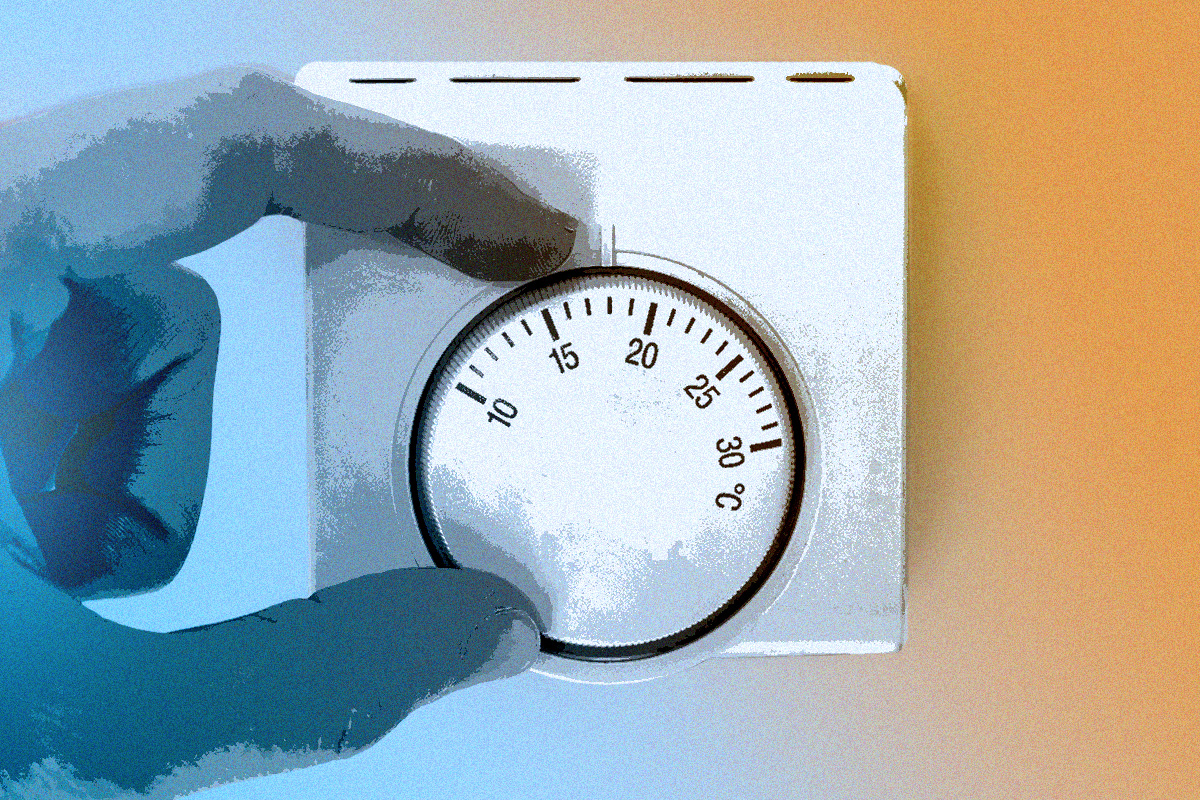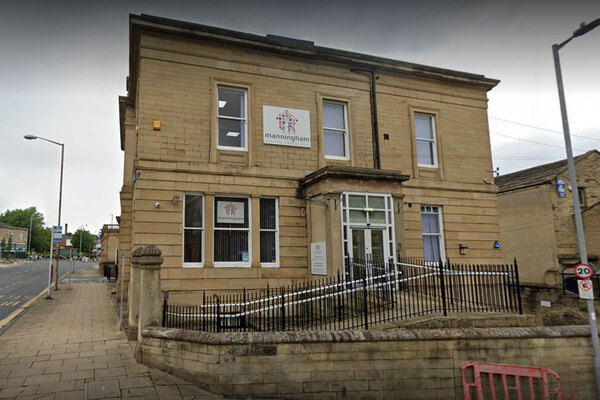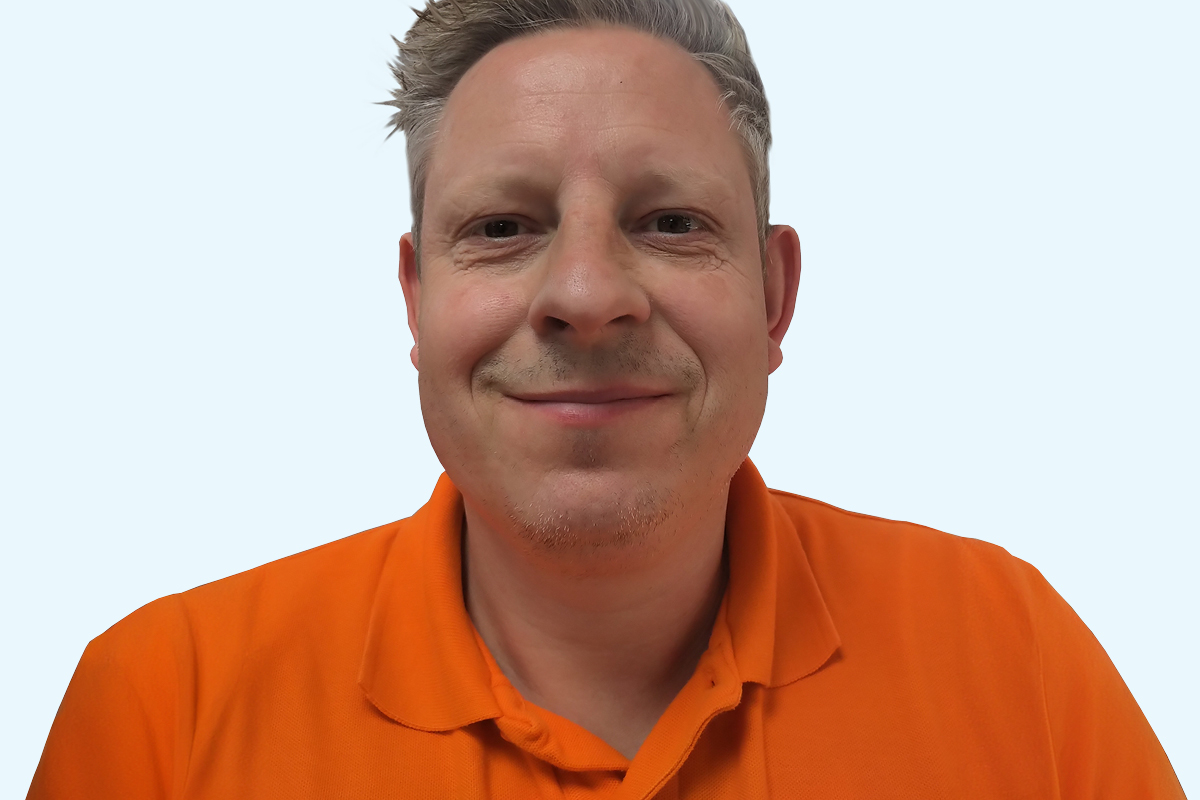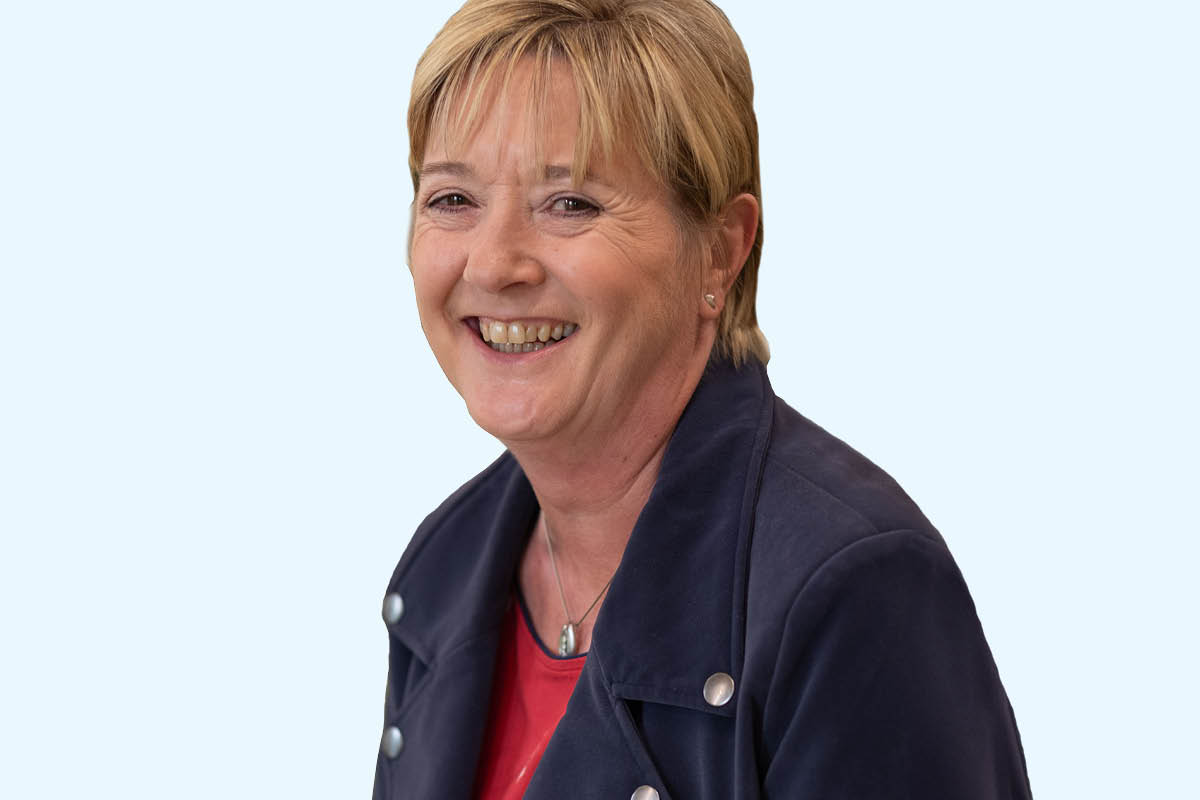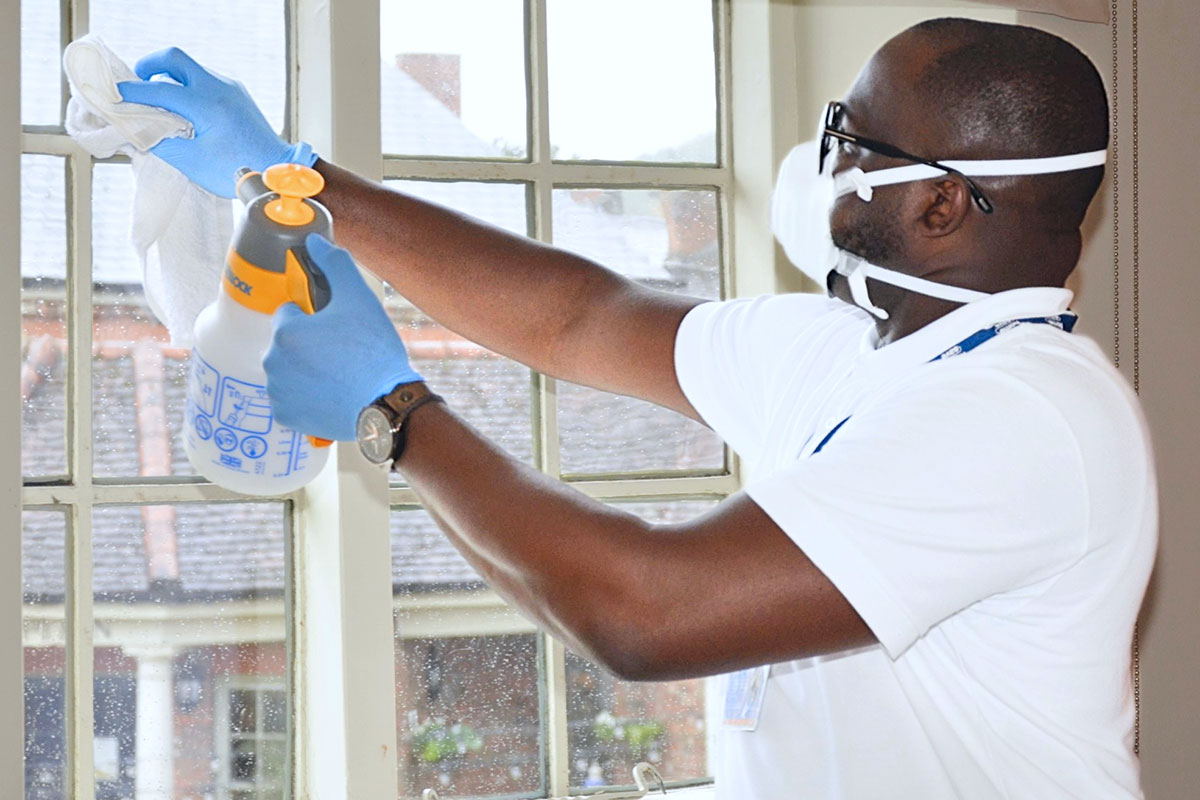You are viewing 1 of your 1 free articles
On the hunt
Geocaching is an adult treasure hunt for the tech age. Kate Youde finds out how one housing association is using it to help keep residents healthy and happy
Video:
Features code

“Whose idea was this?” shouts Adam Price, his black hoodie failing to stop the lashing hail from stinging his cheeks. “Ow!”
The 23-year-old set off walking in the Brecon Beacons under a beautiful blue spring sky, before the weather took a wintry turn. But despite his light-hearted complaint, he is not letting it distract him from the task at hand. Minutes later, he is cradling a plastic container with a small logbook, pencil, green toy car and magnifying glass inside and telling us about the ‘erratic’ (a type of rock) on which he is perched.
“It was moved here by a glacier in the last Ice Age and left behind when the glacier melted,” he reads from a laminated card in the container.
Video:
ad code
The box, which he found concealed under the rock, is a geocache. This is the treasure sought during geocaching, an outdoor pursuit in which people hunt for hidden containers using a GPS device or smartphone app.
Inside Housing has come to rural Mid Wales to see how Gwalia Care and Support, part of 16,500-home Pobl Group, Wales’ largest housing association, is using the activity to promote health and well-being among its clients.

Myriad benefits
In Powys, Gwalia Care and Support helps 490 people aged 16 and over, including those living in Brecon Foyer, its seven-flat supported accommodation scheme for 16 to 25-year-olds, and four other projects with a total of 19 beds. It also provides floating support to people in their own homes.
“What we have found with geocaching is if you give them a piece of technology they are engaged.”
Billy Morgan, geocaching activity leader, Brecon Beacons National Park Authority
In 2011, the organisation linked up with the Brecon Beacons National Park Authority (BBNPA), which provides activities such as gorge walking and rural skills training in the 520 square mile national park. Four years ago, the park authority introduced Gwalia Care and Support to geocaching.
Gwalia Care and Support has since taken about 30 people geocaching on an ad hoc basis, either with BBNPA or independently, in groups of between two and five. It now plans to run sessions once a month and hopes to do more geocaching with park staff – who have also run sessions with 1,100-home Merthyr Tydfil Housing Association – following the extension of an existing local project aimed at promoting physical activity. The £35,000 scheme is being funded by Sport Wales, with 25% match funding from BBNPA.

Billy Morgan, geocaching activity leader at BBNPA, says that when he and colleagues speak to people, particularly children, about going for a walk the first questions are: “How far and how long?”
“It’s a negative thing right away, whereas what we have found with geocaching is [if] you give them a piece of technology they are engaged.”
People have soon walked three miles without noticing. “The physical activity side is great but the confidence building, the mental health aspect and the social cohesion are far more helpful than the physical activity on its own,” he says (see box: Real life Pokémon Go).
We meet at the National Park Visitor Centre near Libanus, where Mr Morgan talks our group – which includes three people being helped by Gwalia Care and Support, volunteers, and support workers – through the basics of geocaching. Although there are approximately three million geocachers worldwide – including more than 160,000 in the UK, according to geocaching.com – most of our group are ‘muggles’ (meaning non-geocachers in geocaching speak).
There are almost three million registered geocaches – waterproof containers comprising a logbook and, in some cases, knick-knacks to trade - hidden in more than 180 countries. Geocachers create a free online account, choose a cache they want to find, and navigate to it using a GPS device or a free app on their phone. Once they find a cache, which is rated by difficulty depending on how tricky it is to find and the surrounding terrain, geocachers sign the logbook, perhaps take away a knick-knack or add one of their own, and replace the container where they found it. They can register their find online.


X marks the spot
Armed with yellow GPS devices already loaded with co-ordinates of geocaches within the national park, we stride out in view of Pen y Fan, the highest peak in southern Britain, in search of a geocache just over a kilometre away. It is known to park staff as the “Countryfile cache”, after the BBC television show was filmed there in November.
Joel Leaman, who appeared on screen with Countryfile presenter Matt Baker, suffers from depression and anxiety, which contributed to his divorce. He started geocaching when living in Stoneleigh Manor, a supported housing scheme run by Gwalia Care and Support. He now lives in a bedsit in Brecon and volunteers for Gwalia. Mr Leaman, 30, says getting fresh air and being around other people is beneficial even when he wants to isolate himself. “It helps you get outside because exercise has been proven in a lot of cases as effective in helping to treat depression,” he adds.
Geocaching reminds him of “when you are a kid and read adventure books with people trying to find treasure, with X marks the spot”. “When you find it, it’s exciting.”

This excitement is something soon experienced by first-time geocacher Dai Short. Looking every inch the country gentleman in his green flat cap, green Berghaus coat and blue waterproof trousers, he grins as he holds aloft a plastic box he found hidden at the foot of a fence post. “It’s good activity and a good bit of fun,” says Mr Short, 41, a keen walker who lives in a Brecon flat owned by 11,500-home Wales & West Housing and managed by Gwalia. “I’ve never used GPS so it’s all new to me.”
“In cases like Dai’s, geocaching is a life changer.”
Delyth Thomas, support worker, Gwalia Care and Support
Delyth Thomas, support worker at Gwalia Care and Support, says this sense of achievement is important for Mr Short, who has substance abuse and mental health issues, as it “might prevent him from doing something negative”. “In cases like Dai’s, it’s a life changer,” she says. “He would never have had the opportunity to do anything like this, or the confidence.” Before Gwalia started working with him a few years ago, Mr Short, who is learning to read and write, was homeless and living in a tent in the woods.
Ms Thomas sees geocaching as a “walk with a purpose”. Many of the younger people the organisation supports are constantly on their mobiles, she says, so it helps that geocaching uses these phones and is therefore seen as a “cool thing to do”.
“One of our remits is to try and improve mental well-being and physical health and it is getting [our clients] out socialising with others as well,” she says. “A lot of them are quite isolated. Because it’s so rural, it’s difficult for them to get some places. With geocaching, you can find interesting areas you might otherwise walk by and not realise they were there.”

The organisation, whose clients use a free app on their phones, only incurs “very minimal” costs for geocaching: for petrol, if they go somewhere not within walking distance of their homes, and the occasional packed lunch.
“A lot of organisations are short of money at the moment so anything that is less cost and high impact is attractive.”
Melanie Rees, head of policy, Chartered Institute of Housing
Melanie Rees, head of policy at the Chartered Institute of Housing, thinks the scheme is “really positive” and might be something others want to look at, as it could be easily replicated. “A lot of organisations are short of money at the moment so anything that is less cost and high impact is attractive,” she says, but warns that housing providers will need to have risk policies in place.
As we switch to using the iPhone app to find our final geocache, unemployed Mr Price, who moved into Brecon Foyer the previous day following the breakdown of a relationship, says the bad weather has not dampened his first experience of geocaching. “It’s better than being stuck inside,” he says.
He suffers from depression and anxiety and finds meeting new people difficult, but would go geocaching again because it “keeps the mind active” in a similar way to running.
Maybe one day he will be ‘FTF’ (for any muggles, that is ‘first to find’ a new geocache).
Real life Pokémon Go
Jordan Reid first tried geocaching a few years ago. “I never used to do exercise and was very unfit,” says the 24-year-old shop assistant, who lives in Gwalia Care and Support’s Brecon Foyer supported housing scheme. “They said it was a day out so I thought I might as well try it and ended up loving it.”
So much so that he now geocaches alone, or with friends, using an app on his phone. As well as improving his fitness and losing weight, Mr Reid has discovered places in his local area that he “never knew existed”. He says it is good for teamwork, confidence and getting people out and about.
And it is fun. “It’s like a real life Pokémon [Go],” he says.
